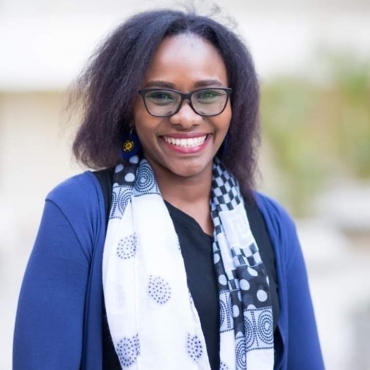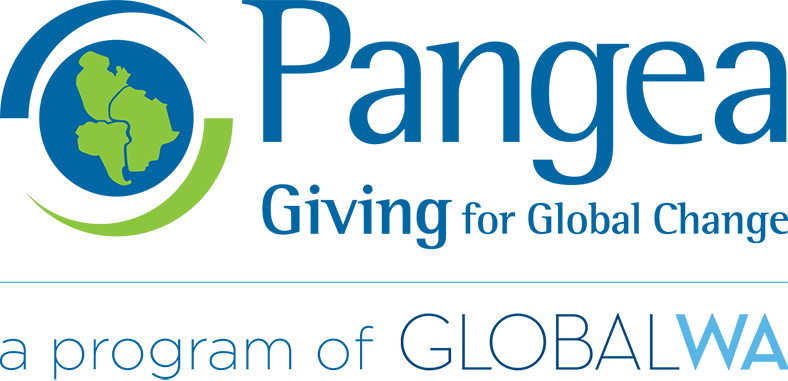Pod advisor profile: Wendo Aszed
Last month, we introduced Elvia Raquec from WJI, Guatemala, as part of our Pod Advisors Program. Today is Wendo Aszed’s turn, a remarkable leader from Dandelion Africa, Kenya. We are thrilled to welcome Wendo into this new role at Pangea Giving, and hope to learn more from her experience as a leader working on the frontlines of local development.

Wendo Aszed is the founder and Executive Director of Dandelion Africa, a grassroots organization based in Kenya, whose work focuses on women’s health care and economic empowerment. Wendo has led successful initiatives that provide safe information and direct services to women and youth about sexual and reproductive health, gender equity, entrepreneurship skill training, as well as other topics essential to women and girls’ well-being.
Wendo holds a bachelor’s degree in Business Administration, completed studies in nonprofit leadership and social entrepreneurship, and experience in the banking industry prior to founding Dandelion Africa. She is part of the 2019 class of the New Voices Fellowship at the Aspen Institute. This prestigious program supports development leaders in Africa, Asia, and Latin America to sharpen their skills in advocacy, media, and storytelling. Wendo is an alumni and an advisor to Perennial, a Seattle-based organization dedicated to leadership development.
Currently, she lives with her family in the rural Rift Valley of Kenya, where she continues promoting and expanding her mission with a community of volunteers. Here are some ideas that Wendo shared with us about how to improve our grantmaking practices:
1. In your opinion, are there grantmaking practices that should be revised or abandoned by international donors? If so, how should they go about making those changes?
Every sector must have its ethos on how they work, some will be restrictive, and others will be unrestrictive. However, some of the grantmaking practices that should be revised are the rigorous, long-paged reports that grantees are required to write. This takes time away from the project, and is cause for mischief and pressure among grantees.
A practice that should be abandoned is the lack of trust for local actors. Due to the top-down models of philanthropy, grassroots organizations are taken through crazy audits only sometimes to be turned down. There is a pronounced shift from hierarchical systems to streamlined systems that allow for collaboration, openness, and horizontal decision-making.
2. What are some of the challenges that women face as community leaders in Kenya that donors need to understand better?
When you are a woman and a community leader, the weight of leadership is heavier. The balance between empowering yourself, women, and cultural expectations is sometimes why most women shy away from this role. For instance, when visiting government offices to address issues of sexual violence, because of the notion that a woman cannot earn this leadership space, we face stereotypes such as “she must have been PUT there by a man.” We work in patriarchal cultures, where we are expected to be seen, not heard. Curving out our spaces in this hostile environment can be both dangerous and frustrating.
3. Considering that donors also have reporting obligations, how can we find a balance between the need for systematic reporting and the burden that our requirements create on small organizations?
Why cannot we co-create this systemic reporting? Why does the giver of the money have to decide? I think that as a grassroots leader, I have the capacity to understand collaboration. And by involving, and engaging me in this process, not only builds me as a person, but also the capacity of the organization I lead.
MEL (Monitoring, Evaluation, and Learning) is usually a foreign concept for the CBO (Community-Based Organizations) who are starting out. Why not capacity develop? Why not engage organizations to think through what their communities need and how to report, so that both the reporting obligations are met and are realistic.
